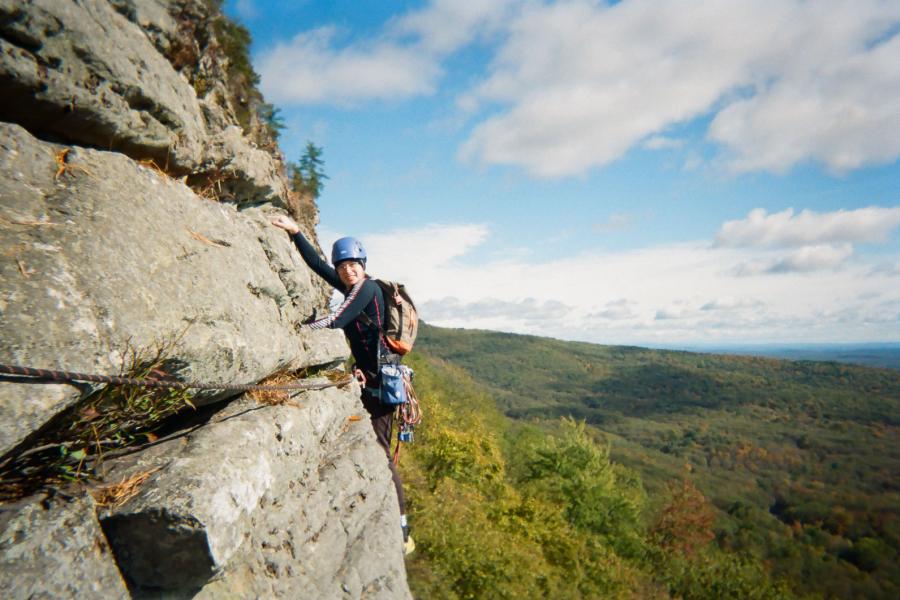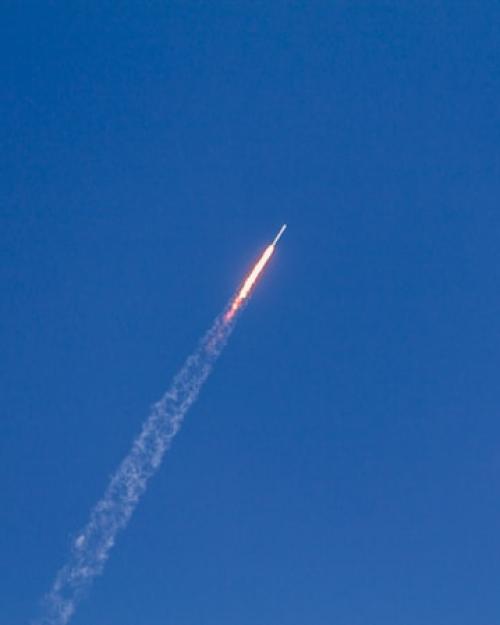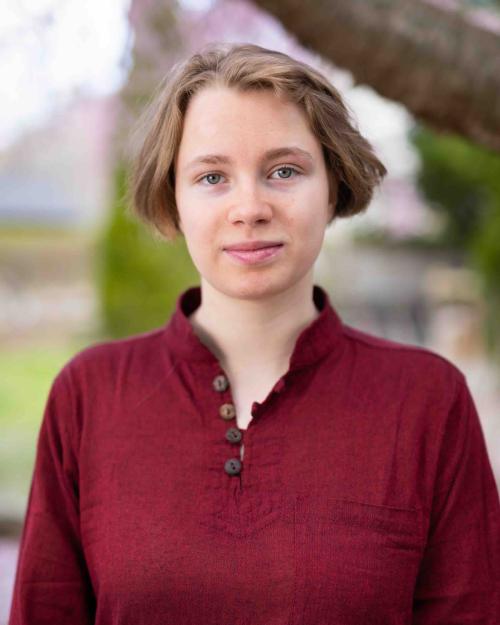Elizaveta Zabelina
Robert S. Harrison College Scholar, Mathematics & Psychology
Korolyov, Moscow region, Russia
What was your favorite class and why?
I might be that (lucky and grateful) rare student for whom every single course was mind-bending and life-changing. Every semester, at the time of enrollment, my mind was getting oversaturated with anticipation of a diverse schedule. Every semester for me was a new short-lived era, a wholesome life, a carefully composed mix of experiences. I valued freedom, but I was guided by the search for balance. I designed my schedules to include four elements: rigorous hard sciences, exploration of the human condition, engagement with art and physical education. For me, this combination was more than intellectual — it was a way of building a lifestyle. I used the College’s resources not just to learn arts and sciences, but to learn how to live, and eventually, to give back. Every course — from topology to psychopathology, physics to neuroscience, music improvisation to gymnastics — reshaped how I see and live in the world.

What is your main extracurricular activity and why is it important to you?
I am a multidisciplinary person by design: there are two to three main subjects I consider myself a part of, and I always have a few projects on the side. I like to think I combined arts and sciences within my main academic path, but if I have to name something as extracurricular, then it’s teaching and learning with Cornell Outdoor Education. Taking the problem-solving mindset out of the library and off the blackboard — engaging not just the head and typing fingers, but the whole body — taught me another notion of risks and resources, gave me an opportunity to lead in unpredictable environments, to take responsibility and to become serious about being “out there,” in and a part of nature. I never expected to find this kind of education at Cornell, but once I did, it became an integral part of my undergraduate experience.

What Cornell memory do you treasure the most?
I remember my first social event on campus; it happened several months into my first year, during the 2020–21 academic year, weighed down by COVID restrictions and an especially cold winter. It was an end-of-year gathering of the philosophy club. I sat there thinking, “So this is what campus life would have felt like without the pandemic …” I wondered whether we’d ever overcome that isolation and catch up with what we lost.
Four years later, I’m in the back of a car with a guitar, singing with everything in me as my friends and I chase a break in the clouds to catch a glimpse of the solar eclipse. In these two moments, and beyond them, are countless memories — bright, heartwarming, where life felt incredibly vivid.
I remember finishing my statistics homework in total darkness, in a hammock in the woods before climbing ropes up to a tree platform to spend the night under gleaming stars (I was a tree climbing instructor). Or sitting with a classmate atop a multi-pitch route in the Shawangunks, watching the sunset and thinking, “We did it.” Or dashing across campus in the rain, lugging a giant dorm desk drawer—an element for my custom musical instrument — for the music improvisation ensemble. Or having the first snowfall of the season in the morning of the most difficult, but most beautiful math exam. Or storming into Big Red Barn for lunch on a sunny last day of class still in my costume for a peculiar character from an acting class, laughing inside my head at how funny I feel.
I treasure the moments when together, or on our own, we were doing — acting sincerely, energetically, making things happen, making the days count.
What are the most valuable skills you gained from your Arts & Sciences education?
From my very first day as a student here, every professor emphasized the importance of critical, independent thought. Before I even realized it, I was gaining the most valuable skill I could have hoped for: learning how to learn. At an institution like Cornell, just a few months into studying a discipline, you find yourself grappling with ideas at the messy, ever-evolving frontier — the cutting edge of the field. You quickly see that in today’s world, knowledge is constantly being created, challenged and reshaped. Models evolve, methods advance and facts once memorized become obsolete. But true education isn’t about becoming a walking encyclopedia; it’s about developing the ability to construct knowledge independently from the ever-changing landscape of information. I will always see this as a work in progress: My undergraduate degree from Cornell launched me on a lifelong path of learning, but thankfully it also gave me the tools to go on.
What have you accomplished as a Cornell student that you are most proud of?
My journey in the Robert S. Harrison College Scholar Program — a selective opportunity that allowed me to design 2.5 years of curriculum around my own multidisciplinary question — stands as my most valued academic accomplishment. Embracing the “journey, not the destination” mindset, I’ve come to appreciate the intellectual path I followed through the program as much as, if not more than, its result.
I arrived at Cornell with big questions in physics and philosophy: What is the nature of order and time? Is there a theory of everything? What is physical reality? I got into the College Scholar Program with an ambition to understand continuity: Is there truly something continuous out there or is this a construction of our minds? Such questions cannot be answered within the scope of an undergraduate career, but I was determined to at least find a way to approach them.
After a few semesters, I realized that I cannot see a path to the answers through physics and philosophy, but I could feel a way through mathematics and psychology. With a more mature perspective, I reframed my question and returned to the broader inquiry that had sparked it: What are the limits of human abstract thought? In no time I found myself delving into the science of cognition, neuroscience, psychology of perception. By my final year, I saw how my interests could have easily veered into evolutionary biology and thermodynamics as well. For my honors thesis, I wrote a theoretical work on the computational basis of life and cognition, showing how minimally conscious systems might emerge from dynamical systems with certain constraints.
This thesis remains the most substantial intellectual work I’ve produced so far. Yet, it doesn't fully capture the scope of my journey in the program. Remembering my freshman plan, I’m still amazed by the whirlwind of disciplines I encountered — how they came together into a unified exploration and deepened my understanding of what it means to be a living, conscious being.
In a way, I did find answers to my original questions, even though these remain, for now, notes to self rather than academic hypotheses. But it was the College Scholar Program that gave me the green light to dive deep, to take intellectual risks, and to shape my own path. It made me do the impossible: respond to questions that would leave me speechless. At every juncture of my journey, there were bright people — professors, graduate students, fellow independent scholars —beacons on my path, whose encouragement, inspiration, wisdom helped me go forward. The program brought my other majors and academic interests together into a coherent whole and connected me with researchers at the forefront of their fields. Without the academic and moral support of this rigorous research environment, I would not have been able to build such a scenic, immensely rewarding, and meaningful academic path.
Every year, our faculty nominate graduating Arts & Sciences students to be featured as part of our Extraordinary Journeys series.Read more about the Class of 2025.




